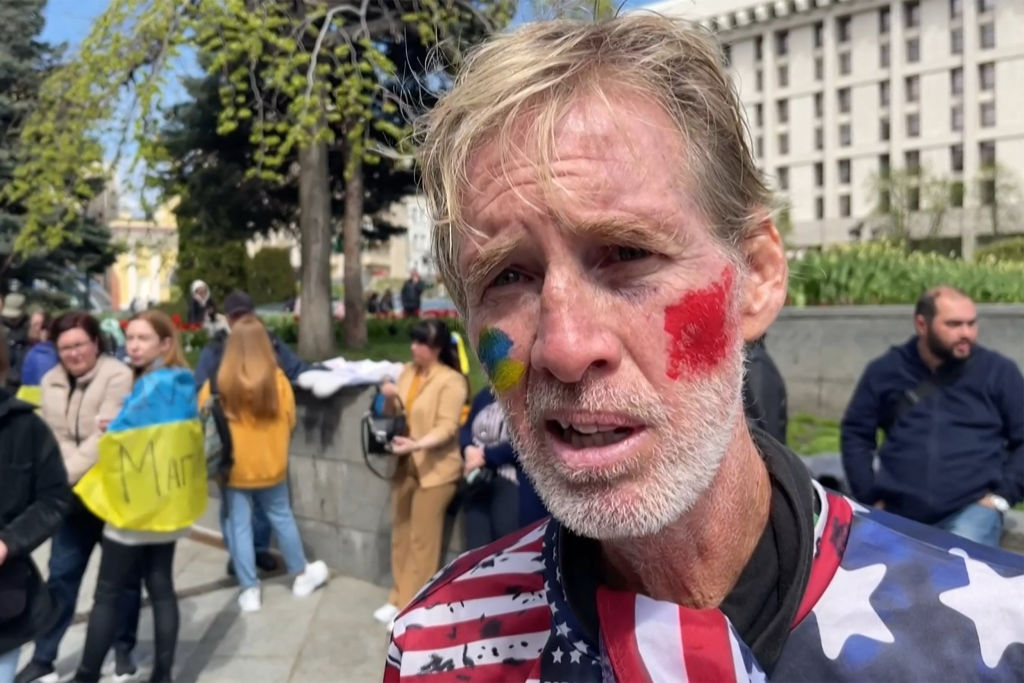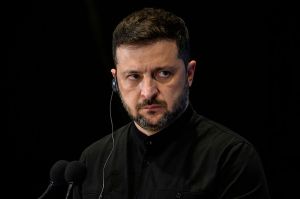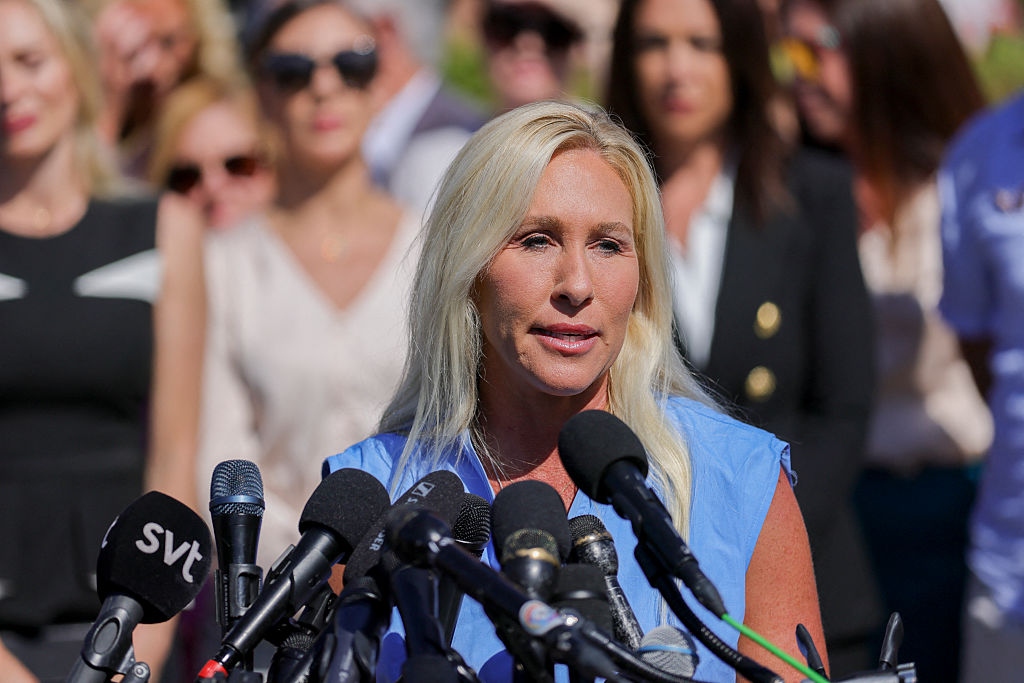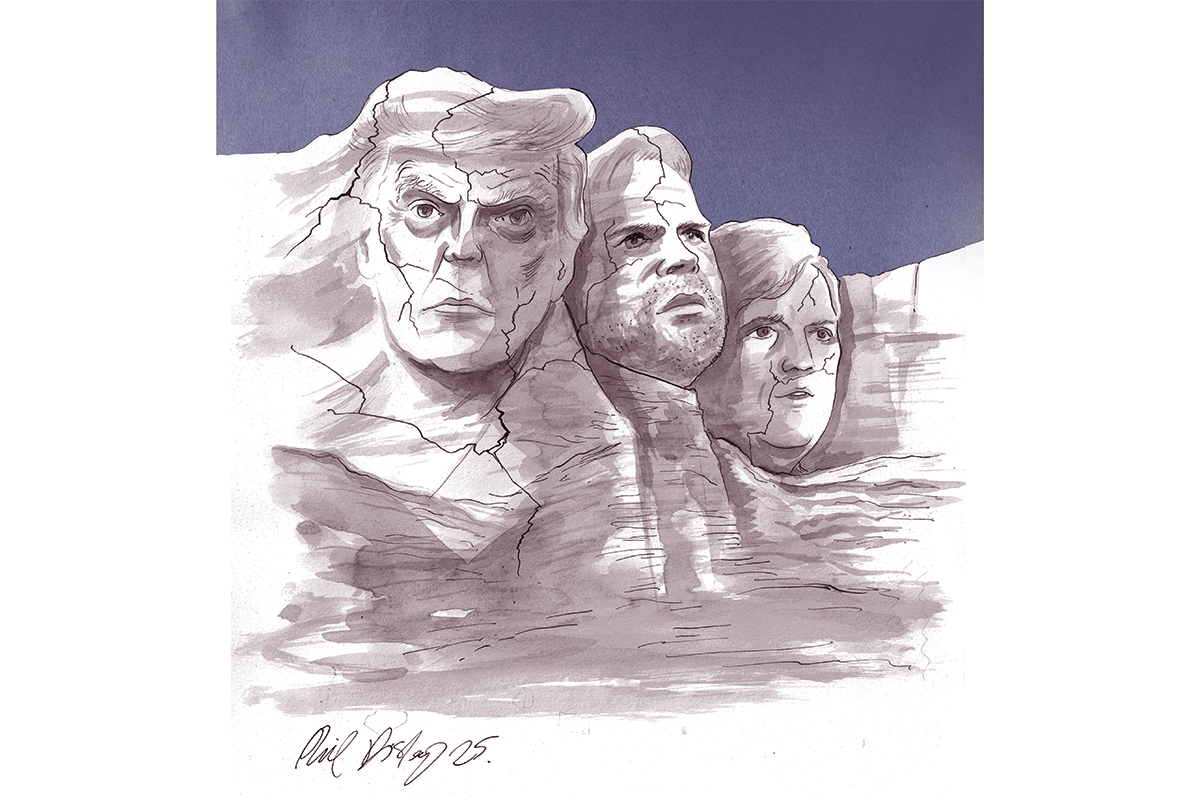Any journalist who has covered a war will recognize Ryan Routh’s type immediately — the war zone crank.
Routh is currently all over America’s front pages, accused of trying to assassinate Donald Trump.
The photograph used by most news outlets shows a grizzled-looking character with a flak vest, a stars-and-stripes neckerchief and a troubled stare.
Back in 2022, he traveled from his home in the US to Ukraine, shortly after Russia invaded. He ended up in Independence Square in Kyiv, setting up an open-air camp adorned with flags and handwritten placards — open air camps with placards being another reliable sign of crankdom. But then warzones have always attracted the mad, the bad and the sad.
Before he left home, Routh tweeted: “I am going to fight and die for Ukraine.” When he got there, he didn’t actually join the Ukrainian armed forces — and a Ukraine official told me there was no record of him even trying. Instead, he started his own recruitment drive, creating a website — https://fightforukraine.com.ua/ — that’s still up and which tells would-be volunteers how to join the International Legion in Ukraine. “Do not call your home country embassy to seek approval to join the fight, simply get on a plane and come to Ukraine and join us.”
He is a building worker, originally from North Carolina
Part of Routh’s plan was, apparently, to recruit former Afghan soldiers who’d fled the Taliban. With admirable frankness, he told the New York Times he would buy them fresh passports in Pakistan “since it’s such a corrupt country.” However, he also said in his NYT interview, about another volunteer in Ukraine who had disagreed with his vision for world peace: “He needs to be shot.”
As Routh’s website helpfully tells potential recruits, it’s easy to reach the frontlines in Ukraine. You just get a tourist flight to Poland, a train or a taxi to the border, and tell the first Ukrainian official you meet you’re volunteering. Right at the start of the war, I came across a British man who had done exactly this: flying to Warsaw, taking a taxi to the border, and offering the Ukrainians the benefit of his experience as a retired colonel.
Later the group I was with got a phone call from the man’s former wife. She told us he had been under psychiatric care but had escaped. It was true he had once served in the British Army, but he had left as a major, not a colonel. She thought that being in Ukraine would only feed his fantasies, with unpredictable results. Then I got a pained message from one of the Ukrainian officials running the international brigade. The “colonel” had promoted himself to general, was turning up at various Ukrainian barracks to recruit his own unit, and was demanding a meeting with the president. Could I please arrange for him to leave Ukraine?
This wasn’t easy to do. Anyone who has come across a war zone crank knows it can be difficult to challenge their ideas about themselves and the world. Reality is often an unwelcome intruder. The major as we were now calling him — because that was probably his real rank — told me he was needed for vital war work on the Ukrainian president’s personal staff in Kyiv. He muttered darkly about a conspiracy, led by his ex-wife.
In the end, we told him he was required back in the UK to give an urgent one-on-one briefing to the prime minister, Boris Johnson. A former British military officer I know, who was working as a security advisor in Ukraine, posed as the MI6 station chief and waved the major into a taxi with a crisp salute. He was doubly convinced Downing Street was organizing his trip back, hush hush, because we’d bought him seat A1 on an EasyJet flight out of Poland, “reserved for VIPs.” He was met at Heathrow by some police officers who escorted him to a waiting ambulance and some soothing medication.
The major was probably harmless, but I met an altogether more sinister kind of fantasist during the first real war I covered, Croatia’s struggle to secede from Yugoslavia in 1992. In a Zagreb nightclub — all mirrors and chrome — I got chatting to a guy who had traveled to Croatia to take up arms as a mercenary. He had no military experience. Only the week before, he’d been collecting the dole in a grim northern England town. As he sank his beer, I asked him why he had been moved to fight for Croatian independence. He grinned to expose a gold front tooth and brandished a huge Bowie knife he’d somehow managed to get into the nightclub. He wanted, he said, “to know what it’s like to kill someone.”
Ryan Routh has no military experience either. He is a building worker, originally from North Carolina. A criminal complaint filed on Monday cites him as having previous convictions for possessing a machine gun and handling stolen property. If all of that is true, it may be that traveling to Ukraine gave his life a clear sense of direction it lacked back in the United States.
The Ukrainian official who had asked me to help remove the dodgy major told me that Sunday’s attempted shooting had come amid a “massive campaign” to encourage support for Russia, orchestrated online by Kremlin bots and trolls. So was it part of some Kremlin plot, the shooter’s actions a piece of provokatsiya designed to confound and confuse the enemy? Or is it that he just didn’t like Donald Trump’s stance on Ukraine? Only recently, Trump pointedly refused to say he wanted to Ukraine to win. And Trump’s vice presidential pick, J.D. Vance, has put forward a peace plan that critics say looks a lot like Russia’s.
Routh hasn’t been convicted of anything, only arrested. And though it’s too early to say, if he is guilty of the crime as alleged, it seems he hasn’t done the Ukrainians any favors, whatever his intentions may have been. As someone once wrote of another conflict, war is “madness visible.”
This article was originally published on The Spectator’s UK website.


























Leave a Reply